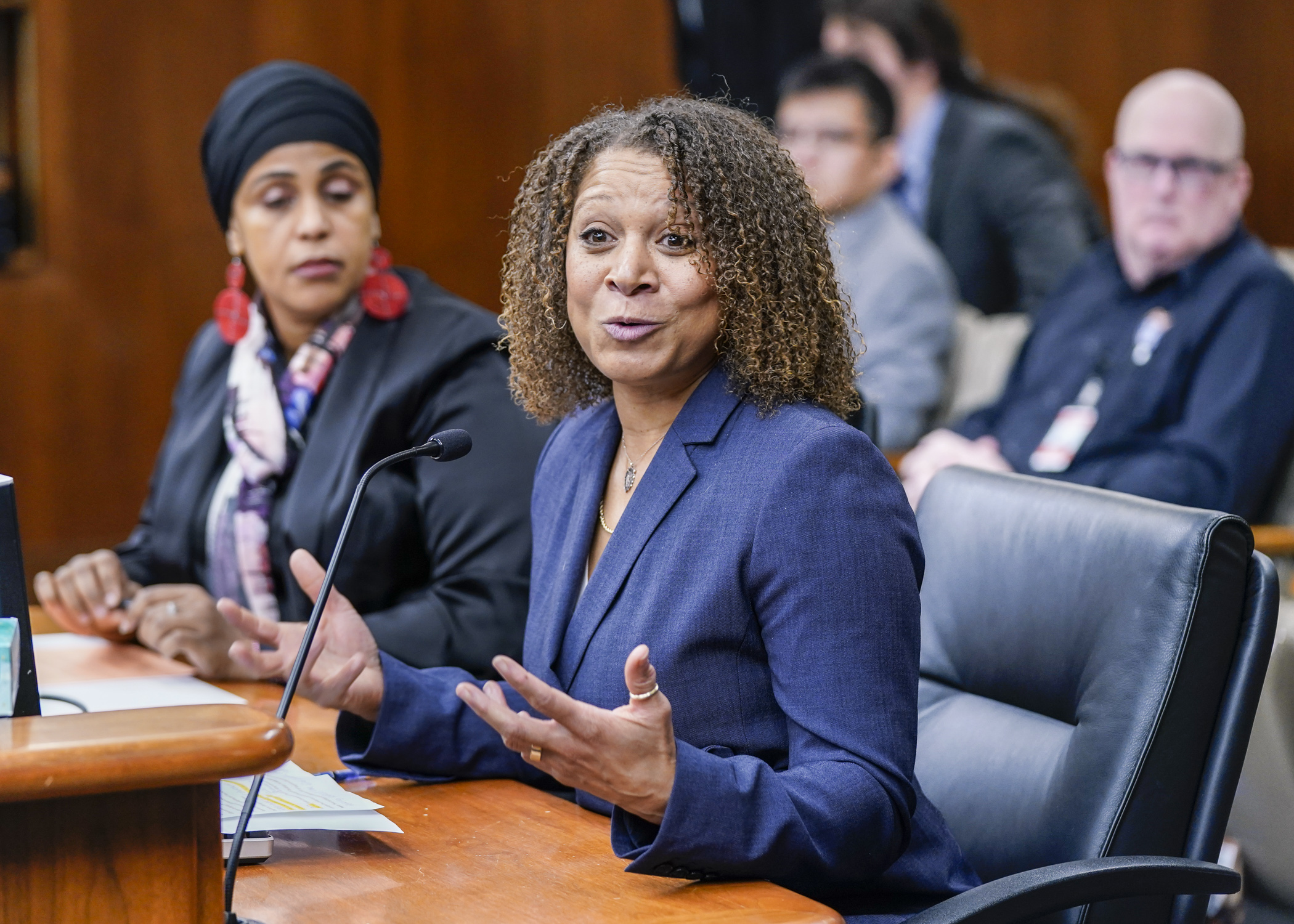Proposed $15 million loan program to reduce racial, economic disparities gets first hearing

Minnesota is a leader on many progressive measures, but a recent report ranks the state 48th in racial equity.
“That’s heartbreaking for many folks,” said Rep. Hodan Hassan (DFL-Mpls).
To reduce that inequity, she sponsors HF318, which would fund community-based lenders to make low-interest loans to worker cooperatives, employee-owned businesses, and commercial land trusts that are at least 51% owned by people who are Black, Indigenous, people of color, immigrants, low-income, women, veterans, or have a disability.
Hassan said getting money into the hands of these typically underrepresented business owners would not only help them in the short-term but help add generational wealth that will reap benefits far into the future.
The House Economic Development Finance and Policy Committee laid the bill over Wednesday for possible inclusion in an omnibus bill.
It would appropriate $15 million in fiscal year 2024, and stipulates that:
- loans would be prioritized to go to the lowest income areas;
- loans must be made to businesses statewide; and
- reasonable attempts would be made to balance the amount of funding inside and outside the metropolitan area.
Shared ownership models, including employee ownership, cooperatives, and commercial land trusts, are proven methods for economic recovery and growth, according to a statement by the Metropolitan Consortium of Community Developers.
Elena Gaarder, the consortium’s chief executive officer, said worker-owned businesses are especially effective at building generational wealth that can have a great impact on businesses and their surrounding communities.
If 30% of U.S. businesses were worker owned, the median wealth of Black households would increase from $24,000 to more than $100,000 annually, Gaarder said.
“That’s a game changer,” she said. “We could really make a dent in the racial and economic disparities in the state.”
The bill specifies an ongoing base appropriation of $2 million per year into a community wealth-building account starting in fiscal year 2025. Fifty percent of all principal repayments would be repaid into the account, making it operate as a revolving loan fund, said Kari Johnson, the consortium’s policy co-director.
The Department of Employment and Economic Development would administer the program, which is modeled after the department’s Emerging Entrepreneur Loan Program. Grants to community organizations would be made in five-year cycles and would be between $50,000 and $2.5 million.
Related Articles
Search Session Daily
Advanced Search OptionsPriority Dailies
Speaker Emerita Melissa Hortman, husband killed in attack
By HPIS Staff House Speaker Emerita Melissa Hortman (DFL-Brooklyn Park) and her husband, Mark, were fatally shot in their home early Saturday morning.
Gov. Tim Walz announced the news dur...
House Speaker Emerita Melissa Hortman (DFL-Brooklyn Park) and her husband, Mark, were fatally shot in their home early Saturday morning.
Gov. Tim Walz announced the news dur...
Lawmakers deliver budget bills to governor's desk in one-day special session
By Mike Cook About that talk of needing all 21 hours left in a legislative day to complete a special session?
House members were more than up to the challenge Monday. Beginning at 10 a.m...
About that talk of needing all 21 hours left in a legislative day to complete a special session?
House members were more than up to the challenge Monday. Beginning at 10 a.m...